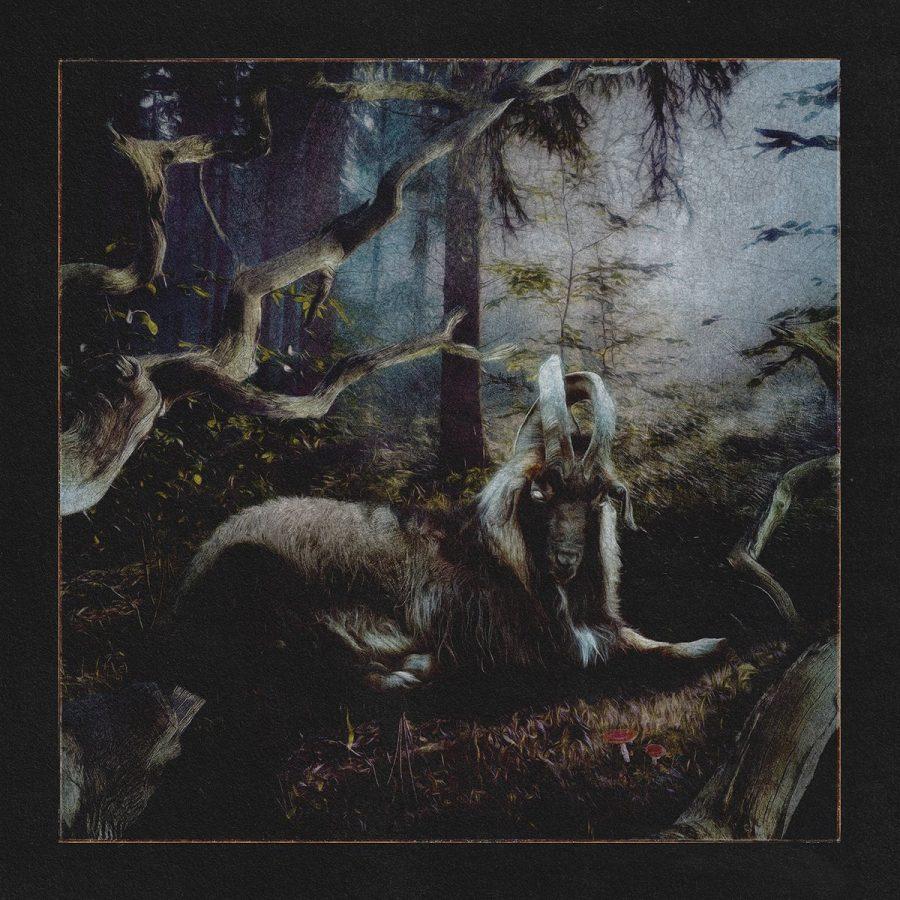Four years ago, in the midst of the album rollout for his 2015 project “I Don’t Like Sh-t, I Don’t Go Outside,” Earl Sweatshirt expressed his disdain for record label hype machines, illuminating the popular music industry’s tendency to use spectacle to promote an artist’s work. On 2018’s “Some Rap Songs,” Earl had to — again — fight for the freedom to control the way his art reached the masses. He requested for the album to be released as a single 25-minute track instead of a 15-song album, a move which distributor Columbia Records would ultimately not honor. Four years later, Earl finally has the last laugh, making and releasing music on his own terms.
Earl Sweatshirt’s latest EP, “Feet of Clay,” quietly dropped Halloween night — this time, without the rollout fanfare and executive label decisions that have plagued past projects. His first project after leaving Columbia Records, Earl can finally do the “riskier sh-t” he referenced to music publications back in January. “Feet of Clay” is risky indeed, but not wholly unfamiliar territory for the 25-year-old rapper/producer, straddling the line between hip-hop record and abstract presentation of memories, feelings and experiences in the form of an audio essay or sonic collaging. This time around, Earl offers more direct, blunt and straightforward raps, but his tendency toward the avant-garde remains.
The EP, standing at seven tracks and featuring one guest verse from rapper Mach-Hommy, is a meditation on the famous idiom which inspired the project’s title. The phrase “feet of clay” has historically been used to convey the character flaws of prominent figures — like Nebuchadnezzar, King of Babylon, who had the dream which birthed the phrase — but is also used to express a society in its twilight stage, the slow decline of an empire. Though Earl typically focuses his efforts toward introspection, at times he uses this as a jumping off point for greater social critique. Earl seeks to reconcile our impending doom as citizens of what he refers to as the “crumbling empire” and “burning Rome” that is the U.S., but also the existence and public magnification of his own flaws as a popular musician.
On songs like the EP’s single “EAST,” the experimental wordsmith bluntly delivers simultaneously straightforward yet cryptic bars ranging from “I lost my phone and consequently / all the feelings I caught for my GF” to the ominous lines “As if it matters if you think it matters anymore / ‘cause sh-t be happening with quick results / they couldn’t fathom all the damage that had to get done.” For Earl, both his world and the greater world we live in are crumbling at the feet, while we watch the destruction happening right before our eyes.
“Feet of Clay” does not offer a romantic solution, nor does it surrender itself to self-deprecating pessimism of past albums. If anything, what it does offer is realism in the form of prayer, however ineffective that prayer may be. This dynamic is best expressed in the song’s third track, the Alchemist-produced “MTOMB” which samples Mtume’s “Theme (For the People) (Opening).” The significance of this song lies in its attempt to offer a sonic depiction of the ever-present dualities we encounter throughout our respective lived experiences — positivity and negativity, hope and despair, life and death, freedom and control, prayer and threat. “MTOMB’s” atmospheric, ominous reinterpretation of a soulful funk song gives it a distinct edge, one which is noticeably darker than the sample’s vibe. The opening line “pray for the people” is almost self-contradictory in its utterance, a declaration of hope for subjugated and oppressed people, yet a phrase which ultimately offers no real prospect for tangible change. Mtume’s name is repackaged as the more foreboding “MTOMB,” a double entendre born of the dichotomy between Mtume’s own aspirations toward musical evocations of hope and Earl’s attitude concerning the pain and despair of life.
In “MTOMB” and the album as a whole, we hear Earl acknowledging the joys and pains of life, the threats to our livelihoods and the prayers which help us overcome those threats through Earl’s it-is-what-it-is mentality. While Earl has learned to cope with grief and to reconcile the skeletons in his closet, he hasn’t forgotten his past as he moves toward the present.
Earl draws on his Pisces zodiac sign towards the end of “MTOMB,” a sign which is symbolized by two fish swimming past one another in opposite streams, representing a metaphorical “pulling in opposite directions.” This choice isn’t accidental within the context of the song nor the album. The line “Piscean just life my father / still got bones to pick out” perfectly encapsulates “Feet of Clay,” a project driven by two fish — ideas, emotions, lived experiences — swimming against one another, each fighting for domination.
While Earl finally saw a win with his release from his Columbia Records contract, allowing him complete control over his own expression, this victory is always offset by the baseline existence of struggle that no human is immune to, just as fame is always countered by the trials and tribulations that accompany it. “Feet of Clay” isn’t Earl’s attempt to fix any of these problems or to revel in one extreme over the other, but to accept them as they are — to seek balance in a world standing unsteady on its decaying feet of clay.
Email Kamau Littletree Holston at [email protected].


























































































































































